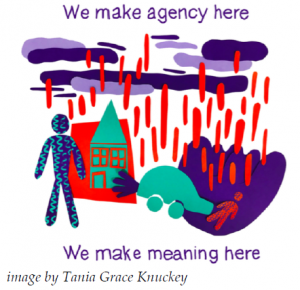The Internet of Things is the killer app of decision
making at all levels, including politics.
@robvank“It is for awakened conscience to assert the principle; events will determine the character of the answer. Ideas once rooted in conscience never die.” Dyer D. Lum *1 The Economics of Anarchy. A Study of the Industrial Type (1890), by Dyer D. Lum (1839-1893). XI. Digression on Methods

In this short text I argue representative democracy and its model of parties and
politicians needs to be replaced with a pragmatic cybernetics model balancing
centralization of infrastructures and decentralization of services. Such a
contemporary anarcho-communism will have as a base of decision making the real time data
streams for the four domains: body (wearables), home (location-based
community), car and bike (mobility) and city (virtual communities based on 5G and current
smart city applications.
In the current climate this does not sound appealing as this kind of model is equated
with either state like control (the Chinese credit system) or surveillance capitalism in
GAFA. I argue that both are the first iterations of the consequences of the communicative
paradigm of the combination of the internet (tcp/ip:pass on the packet), the world wide
web (html: pass on the link) and the Internet of Things (extreme cost reduction in storage,
connectivity and hardware resulting in: pass on the data in large ecosystems).
The period in between the possibility to print a book (1452) and free public book lending (1918 UK) is a
lapse created by and for elites whose scripted scarcity of resources led to huge bubbles of
wealth and power to decide by whose rules systematic approaches to decision making on
large should be organized from monarchies to the representative schemes of today.
Uncoupling the normalizing tendencies – this is the best of all possible models- required a
huge intellectual effort combined b y a series of flukes fostered by the inclination of
engineers as intelligence to optimize only what is at hand and what is perceived to be present
as a given. The hippie anarchist tcp/ip protocol removed any gatekeeping for
thousands of years of repressive sharing mechanisms and lit the fire of sharing as a
default.
The fire is lit and cannot be extinguished.
As such it is the best possible potential line up of building blocks for decision making for
individuals (hyperlocal support structure) communities (collaborative services) and the
planet (full resource management of any device, consumer or Industrial Internet, IIoT,
regarding Climate Change). This was the trajectory I have been following for over 25
years.
I was always deemed naïve, romantic or ill informed as to this positive view, and fully
aware of the arguments I realized this could only be played out as it happened as the
mindset of the entrepreneurs, funders, politicians, leaders and business models could
not do otherwise but try to harness the new insights into their own bubbles of exclusivity,
whether national borders or company brands.
But the fire was lit. And I only navigate on that. I set up the IoT network Council,
theinternetofthings.eu [ https://ieeexplore.ieee.org/abstract/document/8090451 ] in 2009 to bring like minded people together on a n old school mailinglist. Likeminded, not as in thinking like me, but in being tuned to the drivers, repercussions and outcomes of looking at the world not based on race, heritage, wealth,
ideology, religion but on a new (also biased) layer of automated scripts based on real time experimentally obtained data sets.
After reading Tynianov’s second novel, The Death of the Vazir-Mukhtar, Mayakovsky greeted him with the words “So, Tynianov, shall we talk, nation to nation?”
